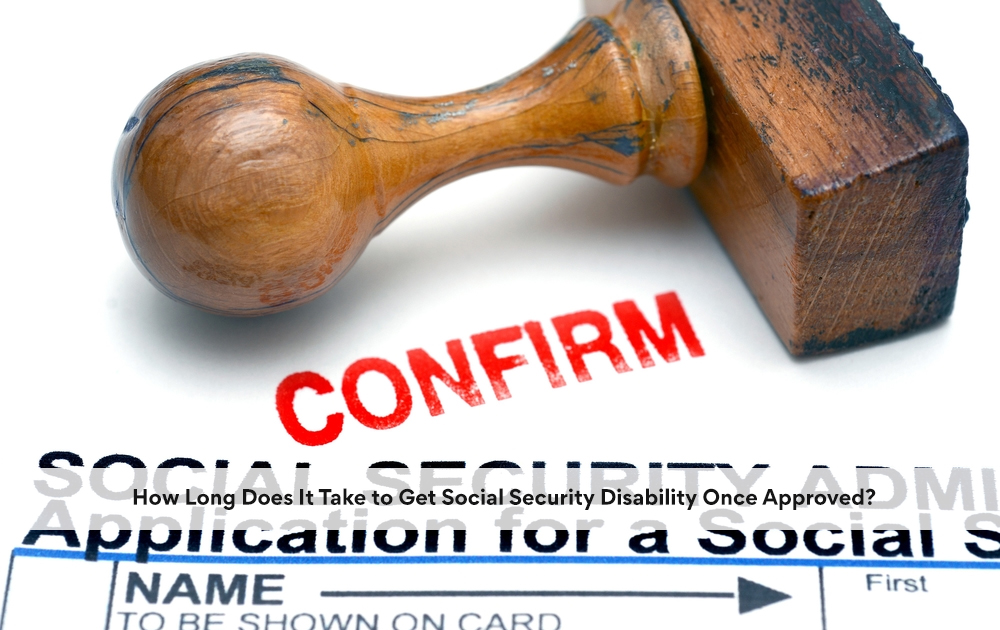Financial challenges only add to the struggles faced by someone who cannot work because of a disabling physical or mental health condition expected to last for a year or longer. Many people with work records turn to the Social Security Administration for assistance through its Social Security Disability Insurance program.
However, the requirement of a work history excludes many people from eligibility for SSDI benefits. People with disabilities excluded from SSDI may find financial assistance through the Supplemental Security Income program and a monthly SSI disability payment.
SSDI benefits differ from person to person because they are based on a claimant’s earnings record, but the federal portion of SSI is the same for everyone who qualifies. As explained in this article, determining what your monthly SSI amount should be is not simple because several factors can affect how much you receive.
What is the SSI program, and who benefits from it?
The SSI program, administered by the Social Security Administration, began in 1974 to provide benefits to the following categories of people with limited income and resources:
- Adults, ages 65 and older.
- Adults younger than 65 who are disabled or blind.
- Disabled or blind children
The definition of disability used to determine adult eligibility for the SSI program is the same one used for SSDI eligibility. You must be unable to do substantial gainful work activity because of a medically determinable physical or mental impairment expected to result in death or that lasted or is expected to last for a continuous period of at least 12 months.
The definition of disability for a child younger than 18, or younger than 22 if regularly attending school, requires a medically determinable physical or mental impairment resulting in functional limitations that are marked and severe. The impairment or impairments must be expected to cause death or be expected to last for at least 12 continuous months.
Blindness has its own definition that is the same for adults and children for determining SSI eligibility. The definition does not include a duration requirement, such as the continuous 12-month requirement of the disability standard for adults and children. If you or your child needs information about SSI for applicants who are blind, contact the disability benefits team at the Clauson Law Firm.
How Much Does SSI Pay Monthly?
The maximum monthly benefit available from SSI in 2025 is $967 for individuals. Eligible couples can receive as much as $1,450. These are the federal amounts. Depending on where you live, your state may supplement the federal benefits with a payment funded by the state.
According to the most recently available information from the Social Security Administration about states supplementing monthly SSI benefits paid by the federal government, the following states do not pay a supplement:
- Arizona
- Arkansas
- Mississippi
- North Dakota
- Tennessee
- West Virginia
- Northern Mariana Islands, a territory of the United States
How much other states pay, along with advice about the requirements to qualify for supplemental payments, can be had by contacting Clauson Law.
The amount of the maximum federal benefit available through SSI can change each year depending on the rate of inflation. For example, a 2.5% cost-of-living adjustment this year resulted in a monthly SSI payment increase from $943 for individuals and $1,415 for couples in 2024 to their current levels in 2025 of $967 and $1,450.
Factors Affecting The Amount Received Each Month From SSI
Marriage, living arrangements, and income other than SSI benefits may affect the amount you receive from SSI in addition to any supplemental payment your state government provides. A good place to begin is by looking at how the Social Security Administration defines “income.”
The SSA does not limit income to cash. If a friend or relative gives you food or a place to live, the value of what you receive is income. The types of income for purposes of SSI include:
- Earned income is wages from working at a job or the net earnings from self-employment. It also includes royalties, sheltered workshop payments, and honoraria.
- Unearned income includes benefits paid through Social Security, pensions, unemployment insurance, interest income, dividends, and money received from relatives or friends.
- In-kind income covers receiving shelter given for free or at less than its actual value. For example, a friend allows you to live rent-free or charges only a nominal rent well below the market value.
- Deemed income is a part of the income of your spouse with whom you live or of a parent whose child lives with when applying for or receiving SSI benefits.
In-kind income included food given to you by relatives or friends, but the SSA changed its regulations effective at the end of 2024. The value of food given to you by friends and relatives no longer counts as income to reduce SSI benefits.
How Does Income Affect Your Monthly SSI Benefits?
The SSI benefit calculation considers income you receive from sources other than SSI, but not all income counts. The following income does not count for purposes of determining your monthly SSI disability payment:
- The first $20 of unearned income received during a month. The exclusion may be applied to reduce earned income if not used toward unearned income.
- The first $65 of earnings from working and one-half of the earnings received in the month.
- Supplemental Nutrition Assistance Program or SNAP benefits, formerly food stamps.
- Income tax refunds.
- Need-based assistance from a state or local government.
- Home energy assistance payments.
- Scholarships, grants, fellowships, and gifts used for tuition and education expenses.
- Money you receive as a loan that must be repaid to the lender.
- Payments made by another person on your behalf for items other than shelter or food, such as payment of your medical bills or a utility bill.
- Up to $2,000 received per calendar year as compensation for participation in clinical trials.
Students younger than 22 may exclude as much as $2,290 in monthly earnings from their countable income. The student earnings exclusion has an annual maximum of $9,230.
How Countable Income Affects Your SSI Benefits
When you have sources of income other than your SSI benefits, you need to determine whether the income is earned or unearned before performing an SSI benefit calculation to find how it affects your benefits. The following examples show how income can reduce your monthly disability benefits from SSI.
If you receive $400 in SSDI, you have unearned income. Only $380 is countable after subtracting the $20 unearned income exclusion. Subtract the $380 countable unearned income from the $967 maximum federal SSI benefit. You’ll receive $587 for the month in SSI benefits.
To do the SSI benefit calculation assuming you have gross wages from work of $455 for the month, start by subtracting the $65 exclusion to reduce the income to $390. Only one-half of the remainder counts, so you have countable income of $195. Subtract the $195 from the maximum federal SSI benefit of $967 to show your monthly SSI benefit as $772.
The final example assumes you had earned income from working of $455 and no unearned income. The $20 unearned income exclusion can be used against your wages. The calculation begins by subtracting $20 from the $455 you had in gross wages, which leaves a balance of $435. Subject $65 from the $435 and divide the answer by one-half. Subject the $185 in earned income that remains from $967, which shows your SSI monthly benefit to be $782.
Deemed Income And How It Affects Your Monthly SSI Benefit Payment
If you are married and live with your spouse who is not eligible for SSI benefits, some of their income may be treated as deemed income to reduce your monthly SSI benefit payment. Deemed income does not apply if you do not reside with your spouse.
The principle behind deemed income is an old one based on the parties to a marriage being responsible for the welfare of each other. The theory holds that a portion of your spouse's income can be deemed available to support you.
How much of a spouse’s income can be deemed available to a disabled spouse depends on whether there are children. The best way to learn how deemed income may affect your SSI benefits is by speaking to a Clauson Law representative.
Getting Your Monthly Disability Benefits Through SSI
The SSA processes SSI disability payments to reach your bank account or debit card on the first day of each month. When the first of a month falls on a weekend or national holiday, your benefit payment is processed on the preceding business day.
For instance, January 1, New Year’s Day, is a national holiday, so the SSA processes payments for SSI beneficiaries on the preceding business day unless it is a Saturday or Sunday. If so, the payment will be processed on the preceding Friday.
Get The Benefits You Deserve With A Disability Lawyer
The team of disability professionals at Clauson Law should be your first source for advice and representation when it comes to disability benefits through the Social Security Administration. Learn more by contacting Clauson Law for a free consultation and claim evaluation.


